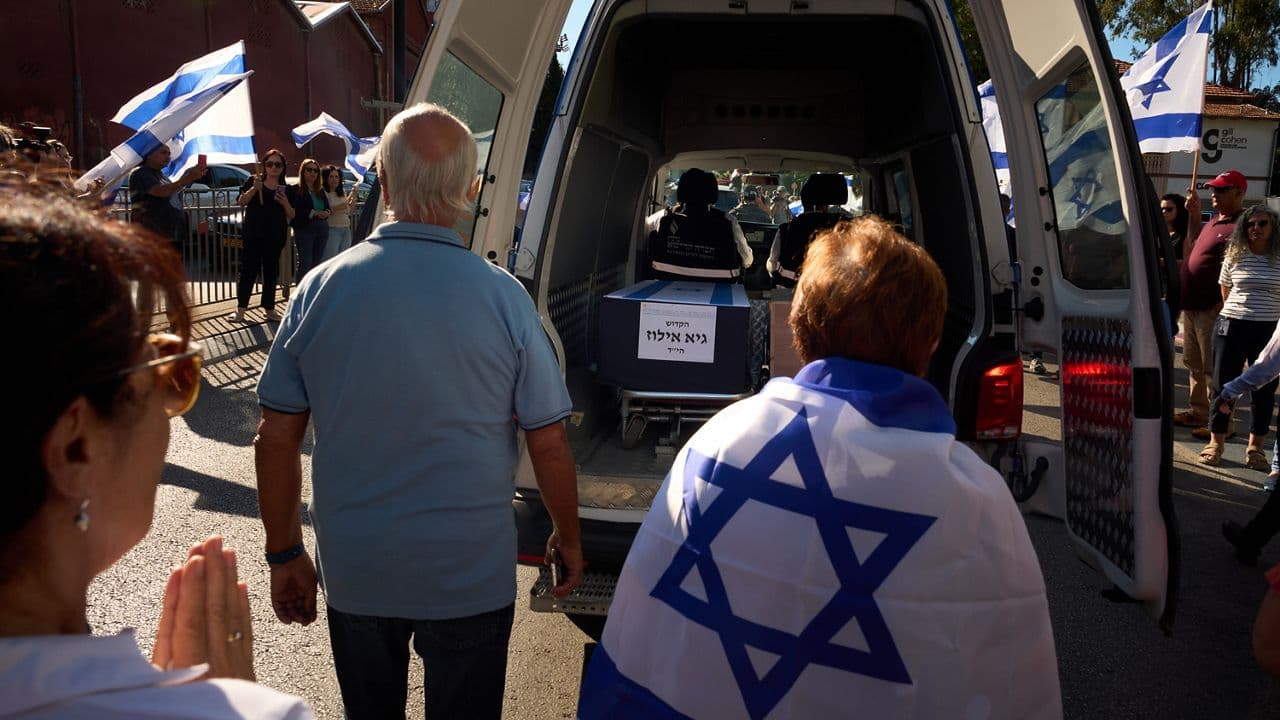We're loading the full news article for you. This includes the article content, images, author information, and related articles.
The latest handover, facilitated by the Red Cross, marks the tenth deceased hostage returned to Israel, intensifying calls for Hamas to uphold the ceasefire agreement and release all remaining bodies.

A coffin containing the remains of a deceased hostage, transferred from Gaza by the Red Cross, has been returned to Israel, the Israel Defense Forces (IDF) confirmed early Saturday, October 18, 2025, East Africa Time (EAT). This development comes amidst ongoing tensions and accusations of ceasefire breaches between Israel and Hamas regarding the return of all deceased hostages.
The IDF, in a statement on X, urged the public to "act with sensitivity and wait for the official identification, which will first be communicated to the families." This sentiment was echoed by the Prime Minister's office, which cautioned against spreading unofficial information.
The return of bodies is a critical component of a ceasefire agreement brokered by the United States, which came into effect on Thursday, October 9, 2025. The initial phase of the deal stipulated the release of all living Israeli hostages and a number of Palestinian prisoners, alongside a surge in humanitarian aid to Gaza. All 20 remaining living Israeli hostages were released by Monday, October 13, 2025.
However, the handover of deceased hostages has been a point of contention. The agreement called for Hamas to release all 28 deceased hostages by Monday, October 13, 2025. While Hamas has stated its commitment to the ceasefire and its "keenness to hand over all remaining corpses," it has also cited technical difficulties and the extensive destruction in Gaza as obstacles to locating all bodies.
The International Committee of the Red Cross (ICRC) has played a crucial role as a neutral intermediary in facilitating the transfer of both living and deceased individuals as part of the ceasefire agreement. The ICRC's mandate is strictly humanitarian, ensuring that deceased individuals are managed with respect.
The ceasefire agreement, based on a proposal by US President Donald Trump, outlines six stages, beginning with an announcement of the war's end and immediate cessation of military operations. It also includes provisions for the full entry of humanitarian aid and a phased withdrawal of the IDF.
Families of the deceased hostages in Israel have expressed immense frustration and a sense of betrayal over the delays in the return of their loved ones' remains. The Hostages and Missing Families Forum has accused Hamas of violating the agreement, asserting that there is "no justification for any unilateral concessions by Israel" while bodies remain in Gaza.
Hamas's armed wing, the al-Qassam Brigades, has maintained that it has handed over all the Israeli hostage remains it has been able to recover, indicating that extensive efforts and special equipment are needed to find the remaining bodies.
The ongoing dispute over the return of deceased hostages threatens the fragility of the ceasefire agreement. US President Donald Trump has warned that he would green-light Israel to resume military action if Hamas does not fulfill its commitment to return all bodies. This highlights the delicate balance required to maintain the truce and prevent a resurgence of conflict.
The destruction in Gaza has made the retrieval of bodies exceptionally challenging, with Hamas requesting heavy machinery and excavating equipment. Turkey has offered to send expert teams to assist in the search for remains, but their entry into Gaza is pending Israeli permission.
A key uncertainty revolves around the exact number and locations of the remaining deceased hostages. While Israel insists Hamas knows the whereabouts of the bodies, Hamas claims difficulty in locating them due to the extensive damage.
There have also been accusations of ceasefire violations from both sides. Israel has pressed for the return of bodies, while Hamas has accused the Israeli military of killing civilians since the truce began.
The ceasefire, which began on October 9, 2025, aimed for the release of all living and deceased hostages by October 13, 2025. While living hostages were returned, the process for deceased hostages has been protracted.
Negotiations for the second phase of the deal, which are expected to address Hamas's disarmament and Gaza's governance, are anticipated to begin soon.
The immediate focus will be on the forensic identification of the latest returned remains and further efforts to locate and transfer the remaining deceased hostages. The willingness of both parties to adhere to the full terms of the ceasefire, particularly regarding the return of all bodies, will be crucial for the stability of the truce and the progression to subsequent phases of the peace plan. The role of international mediators, including the US and Turkey, in facilitating these efforts will also be closely watched.
Keep the conversation in one place—threads here stay linked to the story and in the forums.
Sign in to start a discussion
Start a conversation about this story and keep it linked here.
Other hot threads
E-sports and Gaming Community in Kenya
Active 9 months ago
The Role of Technology in Modern Agriculture (AgriTech)
Active 9 months ago
Popular Recreational Activities Across Counties
Active 9 months ago
Investing in Youth Sports Development Programs
Active 9 months ago